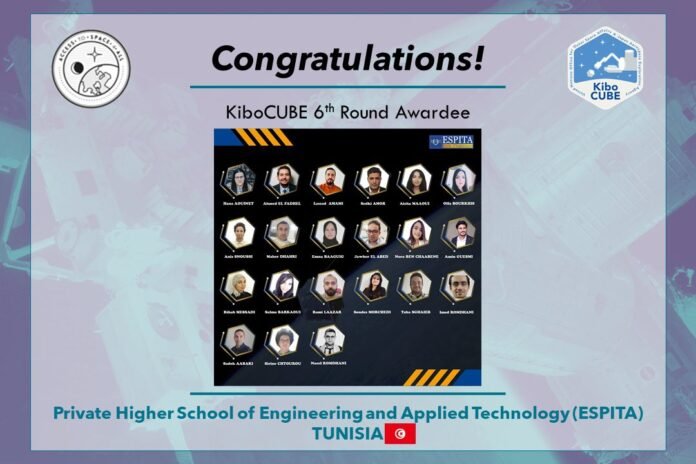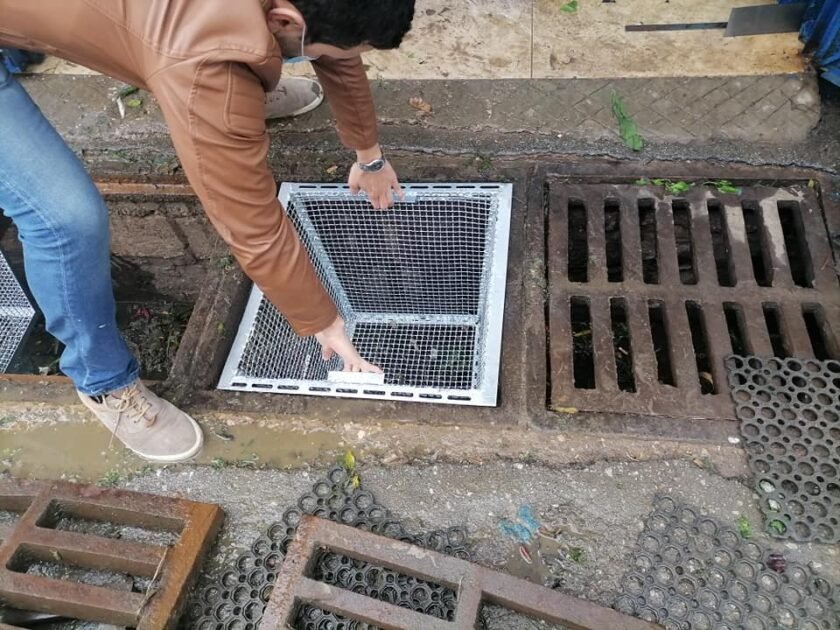The Private Higher School of Engineering and Applied Technology (ESPITA) of Tunisia is one of the two winners of the sixth round. The award will enable the Tunisian school to launch the TUNSAT-1 educational satellite cube as part of the KiboCube programme.
The United Nations Office for Outer Space Affairs (UNOOSA) and the Japan Aerospace Exploration Agency (JAXA), through Dr Simonetta di Poppo, Director of UNOOSA, announced the winners of the sixth round of the KiboCUBE initiative. This is the third time that an African nation has won the programme.
Expressing her pride, the project coordinator and director-general of the Tunisian school, Hana Aouinet, said the main objectives of the programme are to ensure that “30% of the satellite components will be manufactured locally in Tunisia”. It will also “support the development of the Tunisian legal framework for space activities”. In terms of secondary objectives, she noted that they intend to “use the mission as an example to teach at least 500 young Tunisians the different stages of an aerospace project”. Another of the project’s secondary objectives is to “introduce at least 100,000 Tunisian citizens to the application of space technologies in their daily lives.”
Dr Simonetta Di Pippo gave the opening speech and highlighted Kenya’s inaugural success as a winner. She also highlighted how the KiboCUBE project has helped Kenya improve its space programme and noted how Kenya has gained better access to space opportunities. She also noted the successful deployment of Mauritius and the subsequent influence on education.
Hikihara Takeshi, Ambassador of Japan and Permanent Representative to the International Organisations in Vienna, also noted the importance of capacity building and democratisation of space. He took the opportunity to congratulate the winners and expressed his confidence that they will take advantage of this opportunity to improve their space programmes.
Tunisian Ambassador and Permanent Representative to the International Organisations in Vienna, Mohamed Mezghani, congratulated the engineering school and the team that developed the CubeSat. He also expressed his gratitude to UNOOSA and JAXA for this opportunity. He noted that “Tunisia is looking forward to strengthening its cooperation with UNOOSA, JAXA and other space institutions”.
The KiboCUBE initiative will fund the launch of TUNSAT-1 to the International Space Station and its subsequent deployment in space.
The first cycle of KiboCUBE was launched in 2016. KiboCUBE uses the Kibo on the International Space Station (ISS) for the world. It aims to offer educational or research institutions in developing country members of the UN the opportunity to deploy cubic satellites (CubeSats), which they design and build, from the ISS Kibo. Kibo, which means hope in Japanese, is a Japanese Experiment Module (JEM) and JAXA’s first contribution to the ISS programme.
The University of Nairobi, Kenya, won the first KiboCUBE in 2016. Other previous winners include the Universidad del Valle de Guatemala, the Mauritius Research Council, Surya University in Indonesia, the Technical University of Moldova and the Central American Integration System.
UNOOSA has also entered its seventh cycle, as it opened the calls for applications in July 2021.
TunisianMonitorOnline




